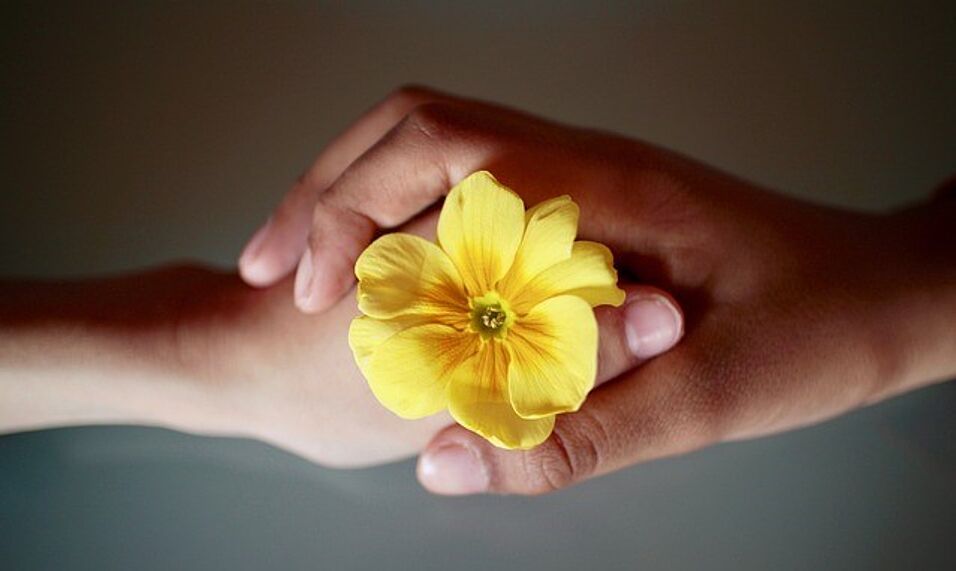These are some of the questions we explored in a recent publication of the SolPan (Solidarity in Times of a Pandemic) project. During the pandemic, solidarity was used as an instrument to explain and justify restrictive policy measures, or to entice people to adhere to such measures. Government representatives told us to comply with lockdowns, to reduce social contacts, to cover our mouth and nose, and to get vaccinated to protect vulnerable populations - all in the name of solidarity. Moving beyond these appeals to solidarity, how did practices of solidarity develop in the everyday lives of people living in Austria and other countries? How did solidarity manifest itself during the pandemic?
The findings related to these questions are published in the journal Medical Humanities. We follow Barbara Prainsack's and Alena Buyx's definition of solidarity, whereby solidarity is defined as a practice with which people express their support for others with whom they feel connected in some relevant way. Purely rhetorical expressions of solidarity would not suffice as an indicator of the existence of solidarity within society. To explore the development and manifestation of solidarity in everyday lives, we carried out in-depth interviews with people living in 10 countries (Austria, Belgium, Germany, England, France, Ireland, Italy, The Netherlands, Portugal and Switzerland) at three timepoints (March and April 2020, October 2020, and October 2021). For the article summarised in this blog, the SolPan team (led by Barbara Prainsack, Gertrude Saxinger and Katharina Kieslich at the University of Vienna), along with colleagues from 8 other European universities, analysed 643 interviews from 9 countries and two timepoints (March and April 2020, and October 2020; Portugal was not yet part of the study at this point).
Breaking the rules - out of solidarity
In the first interview phase (March and April 2020), many of our interview partners talked about solidarity in relation to measures to help contain the spread of the virus. Many people told us that they were adhering to current rules to protect vulnerable members of society, also those whose vulnerability one might not see at first glance. Many viewed the compliance of rules as an act of solidarity. At the same time, solidarity sometimes manifested itself in the breaking of rules: Some interviewees talked about instances where they broke the rules to help neighbours who were alone, for example. Rule-breaking was viewed as justified in these instances, but in other situations it was viewed as deeply lacking in solidarity. One person in Austria, whose sister works as a nurse, told us that their neighbours organised several parties during the lockdown: “...in that moment I was so angry…because I thought, why does my sister maybe have to care for such idiots [if they get sick]...such an unsoldaristic behaviour really annoys me”. The decisive factor for whether rule-breaking was perceived as an act of solidarity or not was whether the behaviour was carried out for supposedly "selfish" motives or with the aim of supporting others.
Interestingly, individuals perceived acts of solidarity in their personal or neighbourhood environment less in later phases of the pandemic. This does not mean that solidarity declined overall, but that the forms of solidarity changed. This led to a remarkable development in our interviews: In the second interview phase, interviewees wanted more institutionalised solidarity in the form of support from the state and the public sector. An unconditional basic income for all, better support for the self-employed or more comprehensive health and education services for children and young people were mentioned here as examples.
In summary, solidarity needs support. On a small scale, acts of solidarity sometimes happen almost unnoticed, especially in times of crisis. However, "small" acts of solidarity - such as those that take place directly from person to person (interpersonal solidarity) - are difficult for many people to sustain if they do not have sufficient social, economic, and also psychological support. Institutional solidarity, which includes provisions and services from the state, is one of the ways to ensure solidarity is sustainable and has lasting effects. Solidarity needs care in order to flourish. If lessons are to be learned from the pandemic, as announced by the federal government in Austria, one lesson should be that the population has a need for more institutionalised solidarity, as our research findings show.

